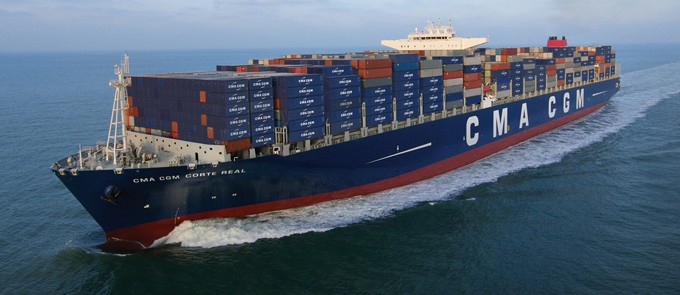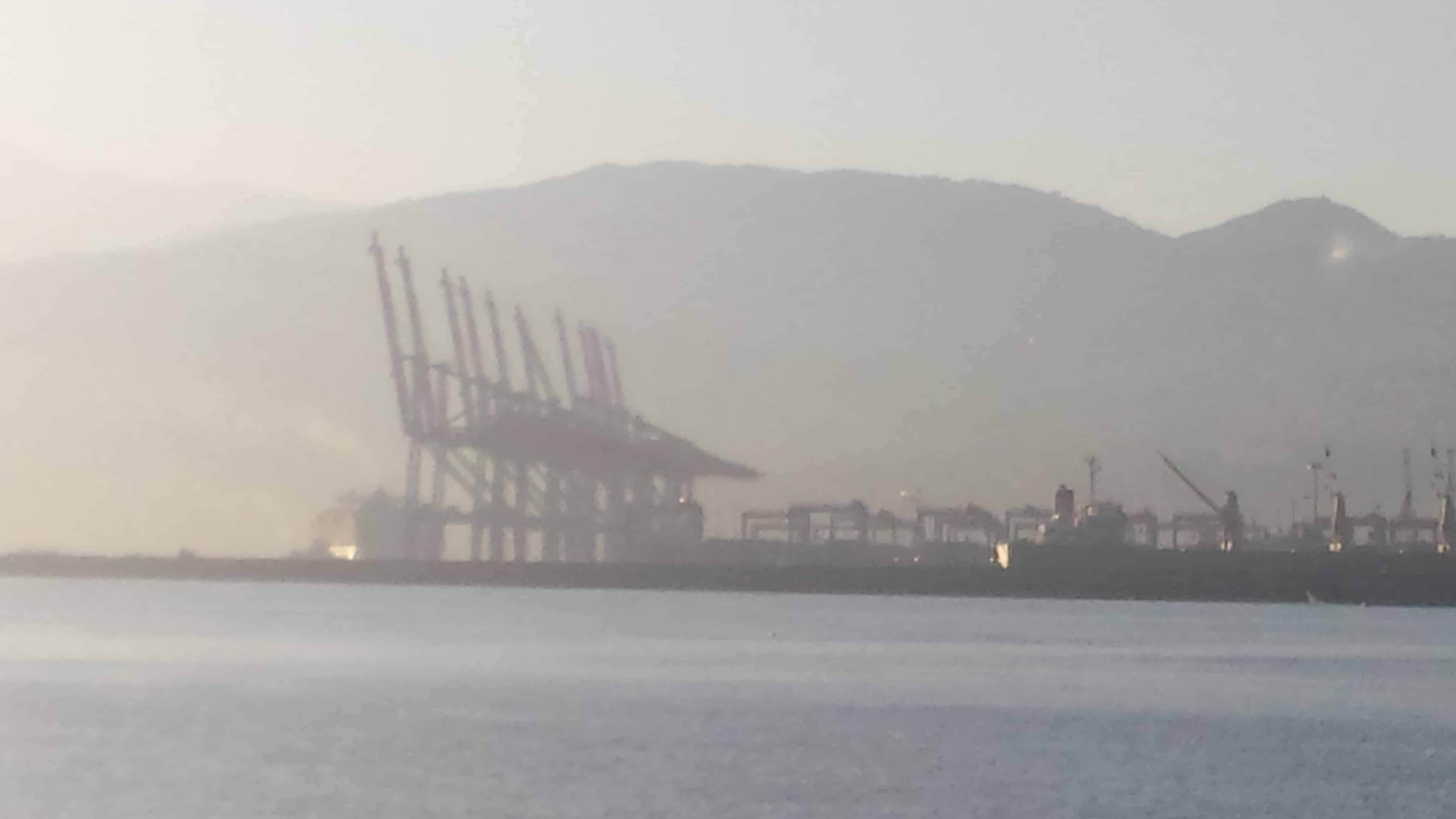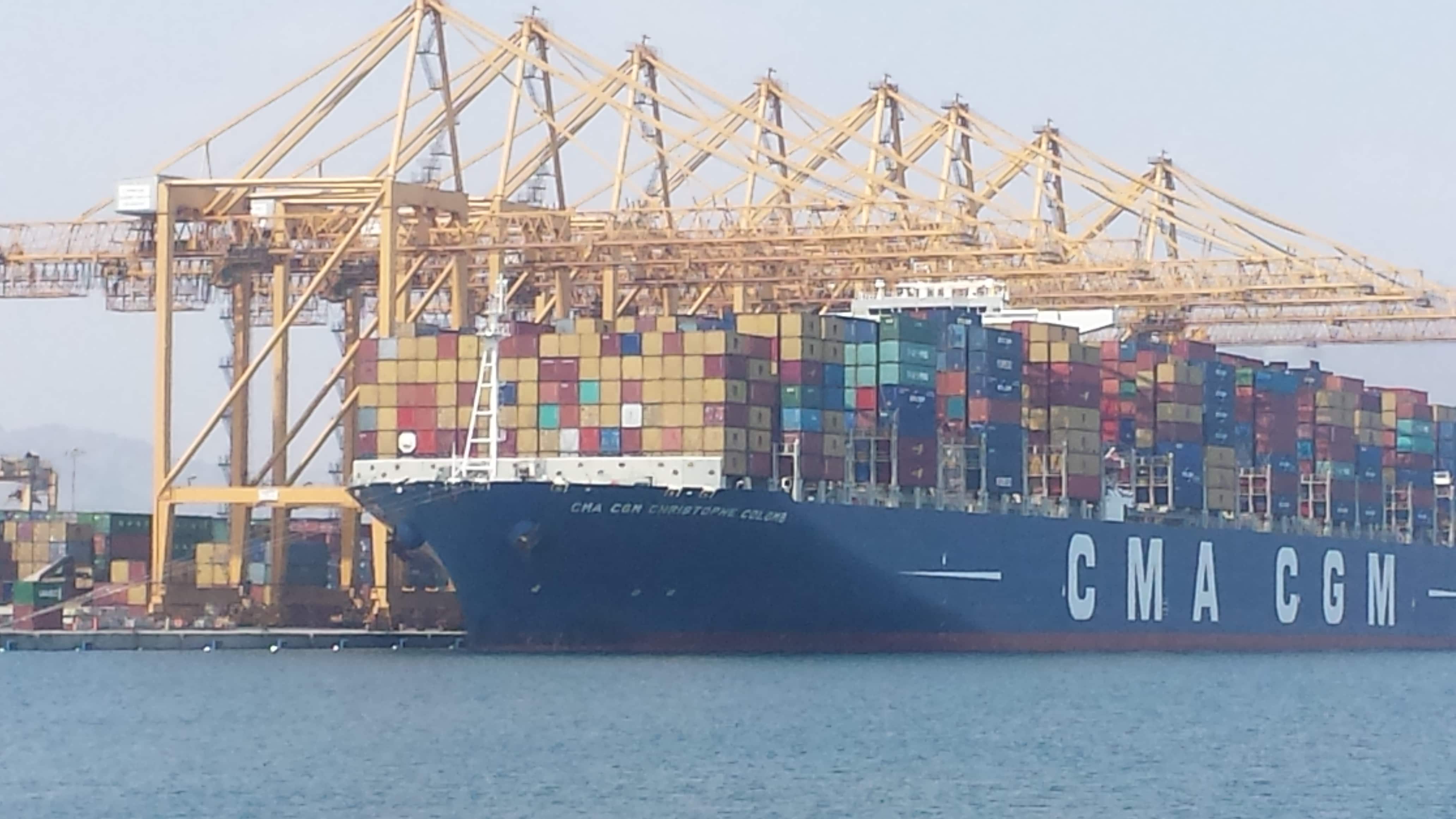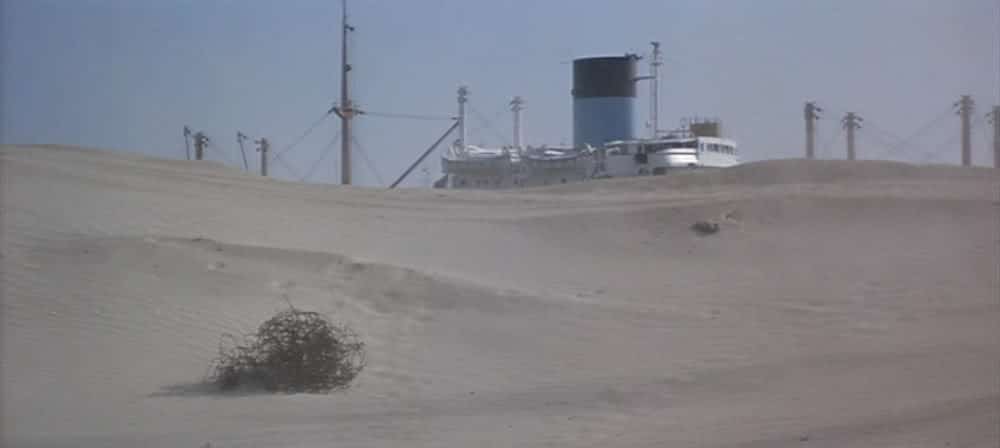Malta to Dubai on a freighter
It all started off with this FT piece by Horatio Clare, whose book (a meditative reflection on ships and travel on the sea) was about to come out. I had just finished reading Rose George’s amazing book on her travels on a Maersk ship. And was about to read about historian Maya Jassanof’s travels on a freighter – from China to Southampton. Not too long thereafter the New Yorker published probably the least interesting of all such travelogues on Patricia Marx’s freighter travels. And when I started my “read-everything-maritime-and-port-related” kick (which led to starting this blog), I read John McPhee’s luminous Looking for a Ship, which though written nearly 25 years ago, is still the most gorgeous meditation not just on travelling on a freighter, but also on shipboard labour and the lives of seafarers on shore. And now there is the blogposts of doctoral student Charmaine Chua which I am not reading just yet, lest they colour my own writing later on (what Paul Kirby has called only half-jokingly “ethnographic purdah”!).
Anyway, back to that December 2013 FT piece. There, at the very bottom, were those magical words:
Book early, as popular routes get booked up a year or more in advance. Agents include Strand Travel (strandtravelltd.co.uk), which has an excellent website, and The Cruise People (cruisepeople.co.uk)
I checked out the routes on both websites, and there, in words, were these sinuous oceanic roads, named ports I knew and didn’t, destinations near and far and very far. The fantasy of the adventure was born then. I had grown up in a landlocked place but have always loved and so very often lived in port cities. I have always loved visiting ports and railway stations. I am not the only one. One of the late Tony Judt’s last pieces for the New York Review of Books was a moving love letter to train stations and trains:
I love trains, and they have always loved me back. What does it mean to be loved by a train? Love, it seems to me, is that condition in which one is most contentedly oneself. If this sounds paradoxical, remember Rilke’s admonition: love consists in leaving the loved one space to be themselves while providing the security within which that self may flourish. As a child, I always felt uneasy and a little constrained around people, my family in particular. Solitude was bliss, but not easily obtained. Being always felt stressful—wherever I was there was something to do, someone to please, a duty to be completed, a role inadequately fulfilled: something amiss. Becoming, on the other hand, was relief. I was never so happy as when I was going somewhere on my own, and the longer it took to get there, the better. Walking was pleasurable, cycling enjoyable, bus journeys fun. But the train was very heaven.
…
Perhaps the most dispiriting consequence of my present disease—more depressing even than its practical, daily manifestations—is the awareness that I shall never again ride the rails. This knowledge weighs on me like a leaden blanket, pressing me ever deeper into that gloom-laden sense of an ending that marks the truly terminal disease: the understanding that some things will never be.
When melancholy, I have never thought of death, but of escape – on a train or on a ship. Living so close to Kings Cross with its travel routes to near and far destinations was always a seduction, a temptation. The fantasy of running away was always just under my skin, this subcutaneous flow of desire and dreaming in my capillaries. When visiting Istanbul what wowed me was the crush of ships waiting to cross through Bosphorus– beyond the architecture that was meant to seduce me. In every visit to Barcelona, I have hauled my children on tours of the port before they ever went to see Gaudi’s Sagrada Familia or Parc Güell (incidentally, the kids found the port tours far more interesting than the usual tourist sight-seeing. Nature or nurture?). When going for runs in new cities, I love the early morning run towards the grand brightly coloured cranes of container ports – backlit if in the east,
gloriously illuminated if in the west…
The technological sublime has always thrilled me. Those modernist temples of construction and technology. I once saw a Concord take flight in Heathrow and was moved to tears. I am still in awe of the fantastical, unbelievable, lumbering takeoff of Jumbo Jets or A380s. Something of the engineer in me remains still; and something of my modernist father’s love of the rational linear voluptuousness of science and technology, the “development” it promised. Like so many other anticolonial, anti-imperial lefties of the 1960s and 1970s, he thought that the salvation of the global South lay in acquiring science and technological sovereignty: in dams, roads, railroads, bridges, airlines, ports, steelworks, refineries.
So the chance to go on a ship invoked in me at once the love of the sea – as that metaphysical space of the sublime, and, perhaps more important, of that material space of both labour and of the technological sublime.
Imagine travelling on a freighter weighed down with colourful containers; imagine crossing the Mediterranean, the Red Sea, the Gulf of Aden, the Indian Ocean, the Gulf of Oman, the Persian/Arabian Gulf. Imagine the ship going through the desert through the Suez Canal (incidentally, one of the most memorable images of the politically terrible but aesthetically wonderful Lawrence of Arabia was of a ship traversing the Suez Canal):
Imagine crossing Hormuz Strait, passing Very Large Super-Tankers travelling in both directions.
I shall be doing exactly this starting next week. I fly to Malta where I board CMA CGM Corte Real and sail for Jabal Ali in Dubai. I will only have internet access when in port (in Malta, Suez, Khor Fakkan and then Jabal Ali) if even that. So I will post my reflections upon arrival – or maybe after I am back in the UK. You can track the ship on www.marinetraffic.com. And for those coming to my inaugural lecture, I will be incorporating images and films taken during the trip in my lecture.




